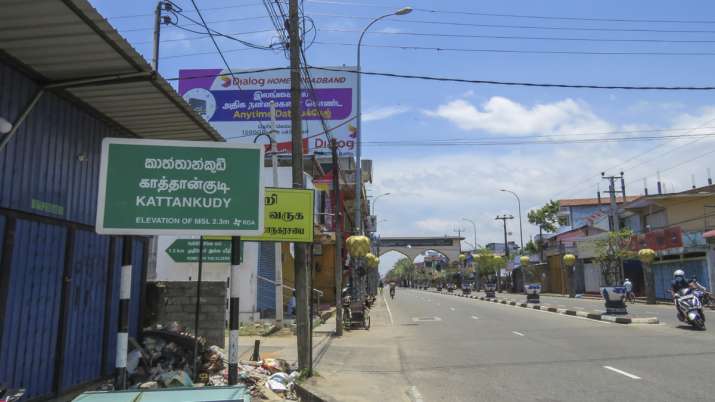
The COVID-19 pandemic has badly affected tourism across the world and Sri Lanka has also suffered. Sri Lanka, a net importer of food and other goods, is seeing a rise in Covid cases and deaths, which has hit tourism, one of its main foreign exchange earners.
Sri Lanka’s economic crisis: Sri Lankan President Gotabaya Rajapaksa on 1 September declared an ‘economic crisis’ amid unprecedented inflation and falling currency and foreign exchange reserves. But what is causing the sudden economic crisis in the island nation?
What is happening in Sri Lanka?
Sri Lanka, which is famous for its beautiful coastline and mountains, relies heavily on the tourism sector. It is estimated that 10 percent of the country’s Gross Domestic Product (GDP) is linked to the tourism industry.
However, the COVID-19 pandemic has badly affected tourism across the world and Sri Lanka has also suffered. Sri Lanka, a net importer of food and other goods, is seeing a rise in Covid cases and deaths, which has hit tourism, one of its main foreign exchange earners.
According to the Central Bank of Sri Lanka, the country’s foreign reserves declined to US$2.8 billion at the end of July, from US$7.5 billion in November 2019 when the government took office and the rupee lost 20 per cent of its value against the US. More is lost. dollars at that time.
President Gotabaya Rajapaksa’s decision on organic farming
Earlier this year, President Rajapaksa announced that he aimed to make Sri Lanka the first country in the world where agriculture is 100 percent organic. The government banned the use of chemicals and fertilizers in agriculture, which has affected the crop yield to a great extent. Sri Lanka, which is one of the top producers of tea and spices in the world, is witnessing a sharp drop in yield in the coming days.
Huge increase in the prices of daily essential commodities
Meanwhile, the Lankan government has appointed a former army general as the commissioner of essential services, who will have the power to seize food stocks held by traders and retailers and regulate their prices.
Presidential spokesman Kingsley Ratnayke told reporters that the military would monitor action that empowers officials to ensure that essential commodities, including rice and sugar, are delivered at prices based on government-guaranteed prices or import costs at customs. Is sold.
The emergency step was taken after a sharp rise in the prices of sugar, rice, onion and potato, while shortage of milk powder, kerosene and cooking gas led to long queues outside shops.
(with inputs from agencies)
Read also: COVID-19: Sri Lanka extends lockdown till September 6 as deaths increase
Read also: India’s economic activity picks up, likely to grow further: Moody’s
.